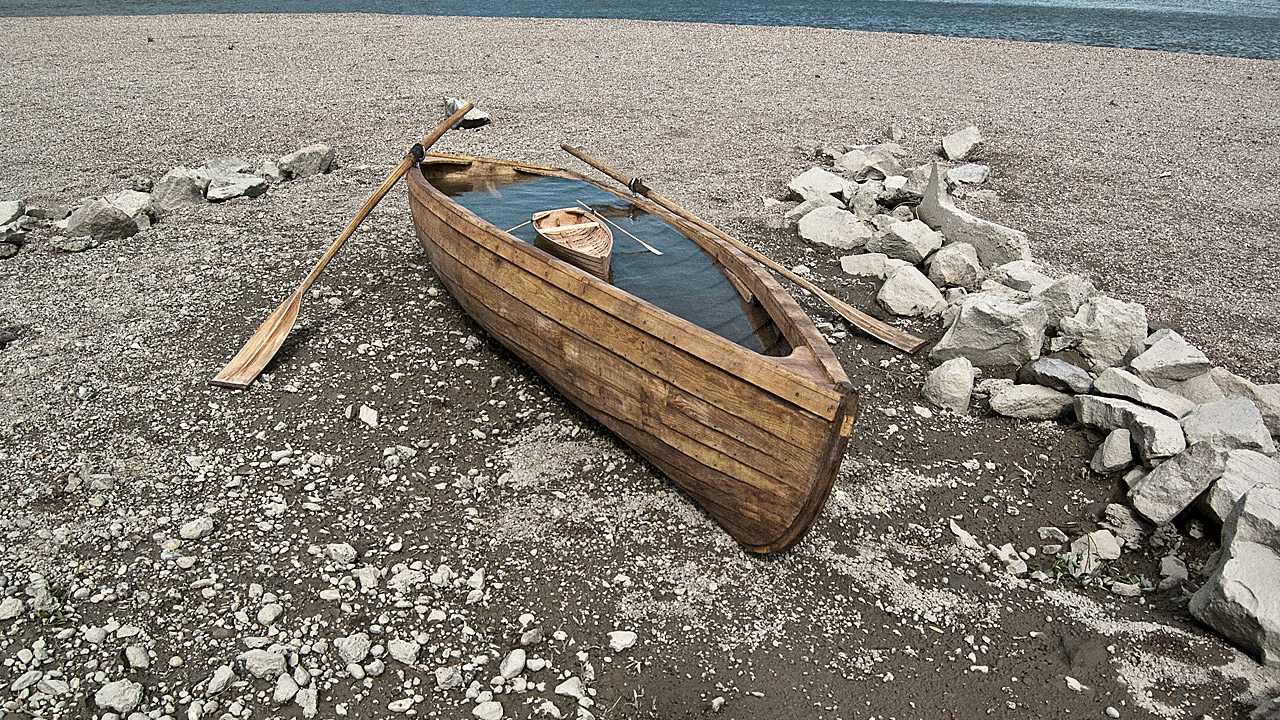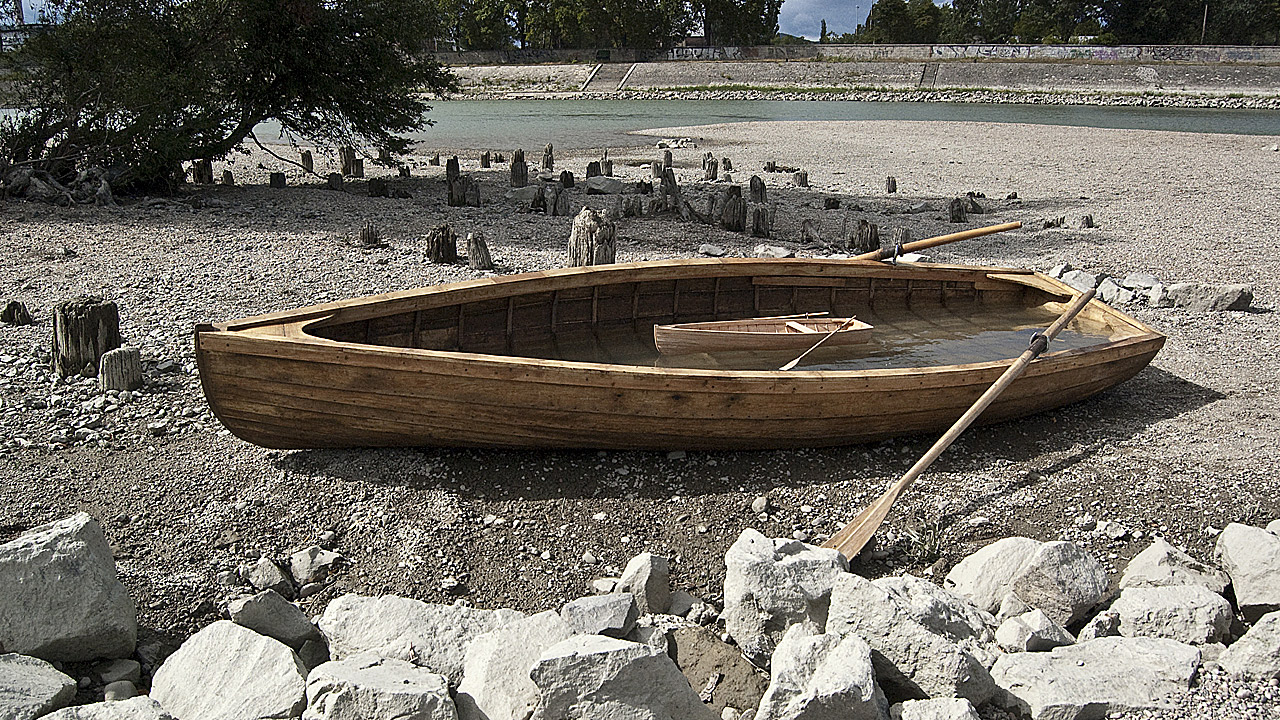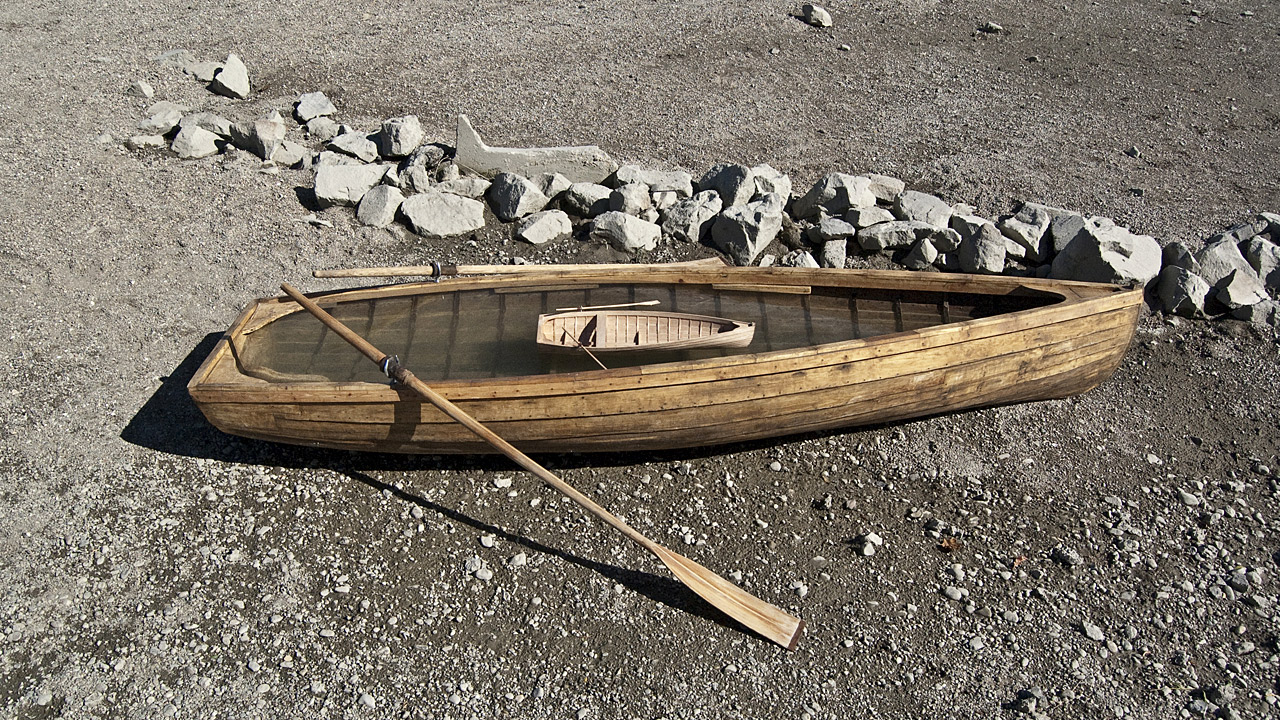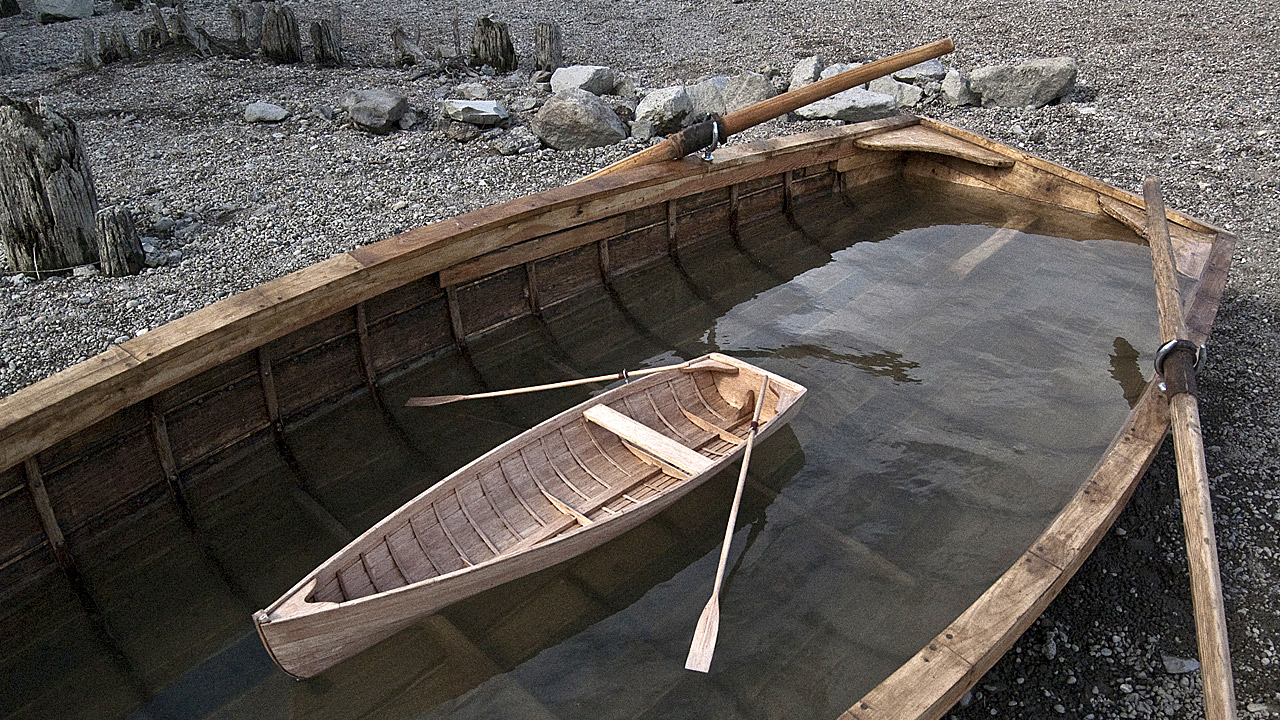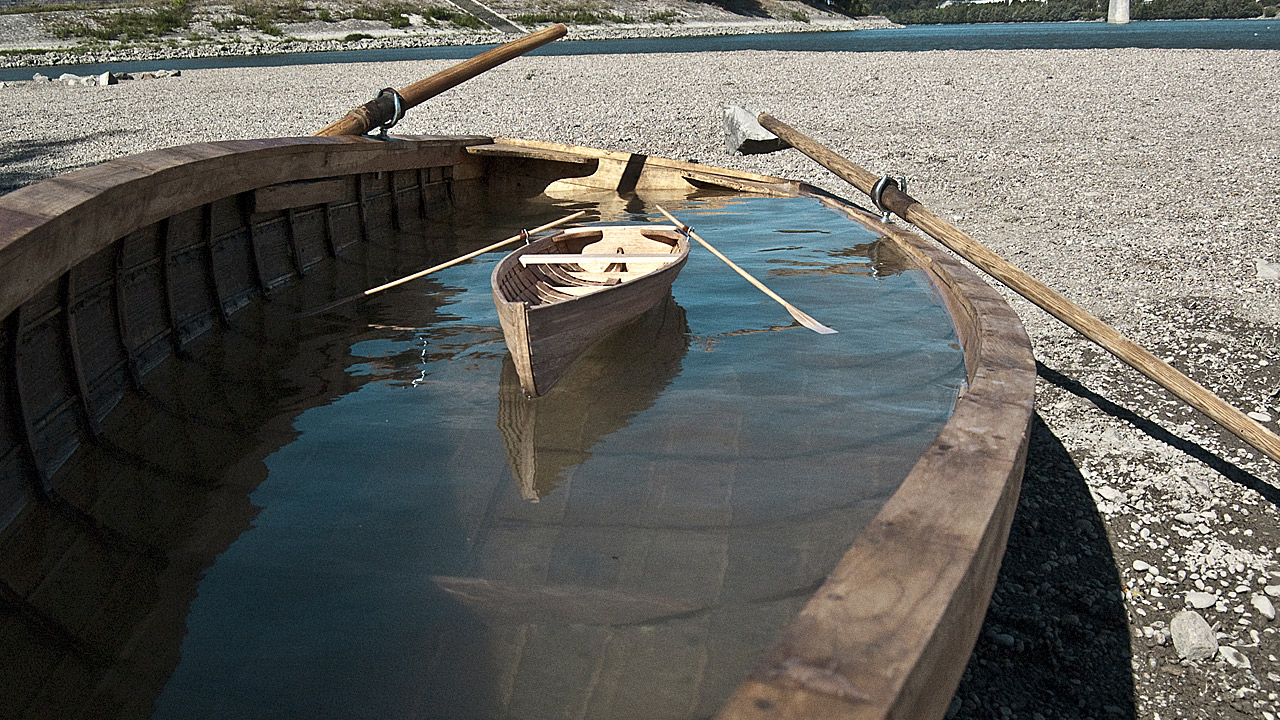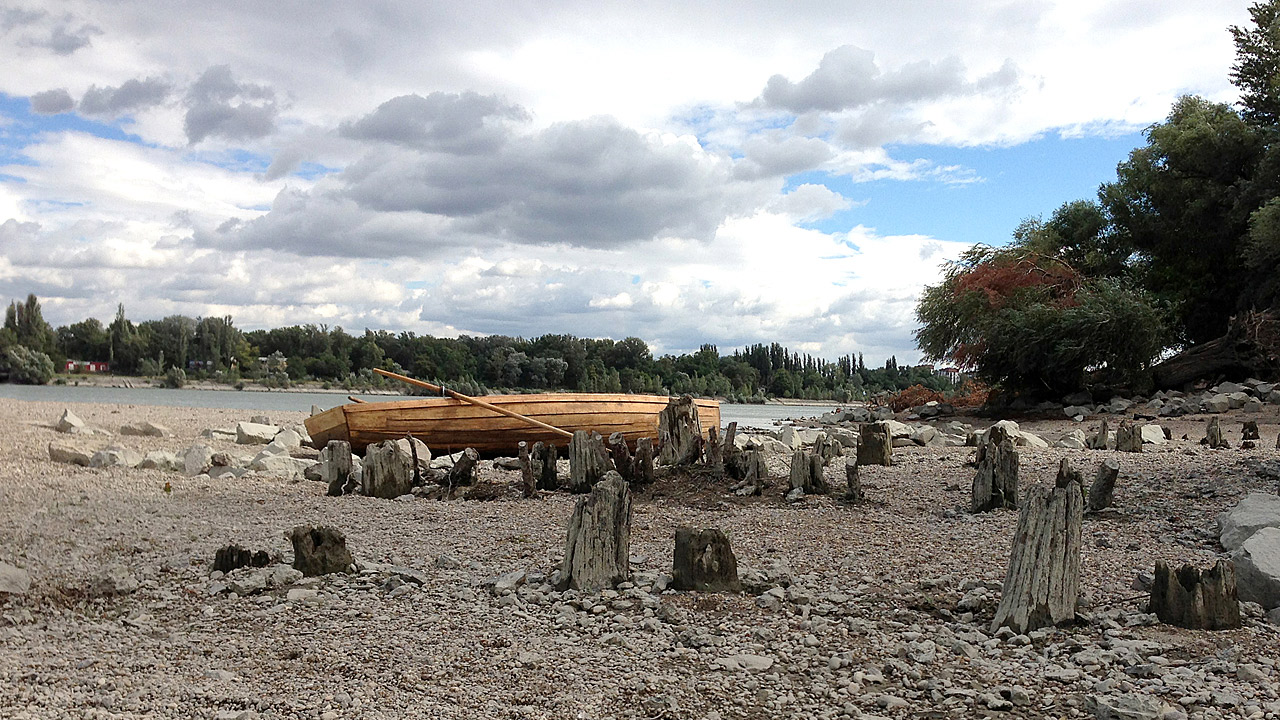Waiting Is A Way Of Life
Genre: intervention (installation)
Date: 2013
Size: ~ 400 x 120 x 60 cm
Materials: wood, iron, plastic, leather, water
Location: Óbuda Island, Budapest, Hungary
Photo: Gergely Tasnadi, Joseph Tasnadi
WAITING IS A WAY OF LIFE
Can you expect freedom or does it occur unexpectedly? Is freedom predictable, or does it come like a surprise? And is the unexpected a surprise in all cases? Or… – Is the unexpected always memorable? Or… – Is the memorable always unexpected?
Anyway… – Can the expected be memorable at all?
Go out to a park. Find a woody area. It should not be too thick, neither too sparse. Let it be late March or early April when the leaves are still small on the trees making the gray park just a bit greener; the grass should be growing through the litterfall. There should be a water source nearby. The sun shining through the foliage should make tiny light patches. Go out there. Bring your boats, and place the big one on a glade. Fetch water to fill the big boat halfway up, and then put the small one on it. Do it in the early morning.
Find a spot from where you have a nice view of your work – then wait. Wait for the sunset. In the meantime, remember hourly. Try to memorize the view of your work. Do it from the same spot every time. Do not move, wait still. Try to hum all the time if you can. Once the night has fallen, draw all the water out of your boat and pour it on the roots of the surrounding trees. Afterwards go home and wait for something coming to your mind that you can wait for, one way or another.
Waiting is always directional. If you consider the direction a good thing, then you will also perceive waiting as something good. Waiting and hoping have a meaningful temporal aspect – patience. If you are lucky, freedom may also occur and then you can say that finally
something memorable happened.
If waiting is a way of life, hoping must be that, too.
**********
A VÁRAKOZÁS ÉLETFORMA
A szabadság várható, vagy inkább váratlanul érkezik? Kiszámítható-e a szabadság vagy inkább meglepetésszerű? Kérdés, hogy a váratlan mindig meglepetés? Vagy… – a váratlan minden esetben emlékezetes? Vagy… – az emlékezetes mindig váratlan?
Egyáltalán… – a várható lehet emlékezetes?
Menj ki egy ligetbe. Keress egy fás területet. Olyat, ami nem túl sűrű, de nem is túl ritkás. Legyen március vége vagy április eleje, amikor a fák levelei még kicsik, csak enyhén zöldítik a liget szürkeségét, a talaj még avaros, de a fű már kibújt. A közelben legyen valami vízforrás. A nap süssön le apró foltokban a lombok között. Menj ki oda. Vidd magaddal csónakjaidat, és helyezd a nagyobbikat egy tisztásra. Hordd félig tele vízzel, és helyezd rá a kiscsónakot. Mindezt kora reggel tedd.
Keress magadnak egy helyet, ahonnan műved látványa szép – és várj. Várd meg a naplementét. Eközben óránként emlékezz. Próbáld memorizálni műved látványát. Mindig ugyanabból a pontból tedd. Ne mozogj, várj nyugodtan. Ha tudsz – próbálj mindvégig dudorászni. Este aztán merítsd ki a vizet a csónakodból, és öntözd meg vele a környező fákat. Majd menj haza, és várd meg, hogy eszedbe jusson valami, amire – így vagy úgy, de várakozhatsz.
A várakozásnak mindig van iránya. Amennyiben az irányt valami jónak tekinted, akkor a várakozást is valami jóként kell felfognod.
A várakozásban és a reménykedésben fontos az időmozzanat, a türelem. Ha szerencséd van, még a szabadság is eljöhet, és akkor azt mondhatod: végre történt valami emlékezetes.
Ha a várakozás életforma, akkor a reménykedés is bizonyára az.
